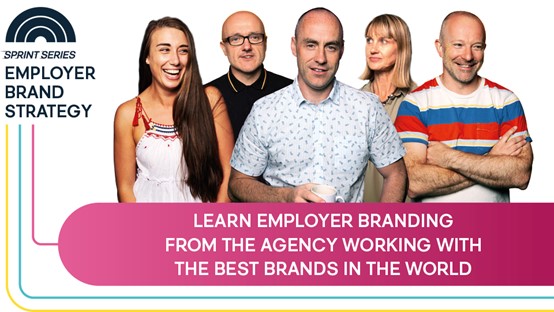We are family! Or are we?
3 min read.Creating a comfortable and inclusive culture is a key talent attractor and parallels with being a 'family' are often easily made, but could that sour employee relations when companies have to make tough decisions?...

A few days ago, as I was reading an article from Business Insider, and worrying about the enormous amount of posts of people being laid-off from many tech companies, I wrote this LinkedIn post:
“The massive layoffs in the tech industry have awakened feelings of hurt and betrayal among its workers. For years these companies have described the bonds they built with their people as “family” and even invented specific names to mark their sense of belonging. Googlers is one example, but every tech company has its own name. So, when Business Insider claims that “Tech spent years playing up the ‘family’ image before shattering it, I can only agree.”
Some testimonials from that article illustrate the idea better:
"It's hard for me to believe that after 20 years at Google I unexpectedly find out about my last day via an email.”
"What a slap in the face. I wish I could have said goodbye to everyone face to face."
This also just drives home that work is not your life, and employers — especially big, faceless ones like Google — see you as 100% disposable. Live life, not work.
But still, most of these companies are talking about being a family; even after laying off many “family members” in some of the most heartless ways possible.
Redefining your talent audience
So, it got me thinking. If we are not family anymore, what are we? How can companies redefine the relationship they built over so many years with their talent audiences?
The obvious difference between a company and a family is that you don’t get to choose your family, and you will have the same family all your life. On the other hand, at work there is a relationship of mutual convenience that can end because one of the parties no longer wants to be with the other (dismissal or resignation), or due to the passage of time (retirement).
It is understandable that, to seek loyalty and commitment among employees, and build an atmosphere of camaraderie and trust, companies have used the concept of family to imply a safe, friendly, and inclusive space.
But today, with widespread layoffs and an overwhelming feeling of deception, the notion that work was always nothing more than a transactional relationship is resurfacing.
Disgruntled ex-employees deceived by a promise of family, connection, and love have found this out in the worst possible way. Some of those fired now promise to never again invest so much dedication and energy in a job, because relationships with the companies are ephemeral and false. Simply, not worth it.
Does this mean the end of everything for us employer branders? Should we accept that labour relations are merely transactional and that we can’t build emotional bonds with companies anymore, because of the possibility of layoffs, deceptions, grudges?
If I started to believe this, I would quit my career in Employer Branding right now.
The thing is that companies inviting us to perceive them as families, are wrong. From the moment they have the chance to fire an employee, or to deceive them in any way, “family” is a word that’s too big for them. A family member, a Mum, a Dad, ideally, is someone you can always turn to, who will not abandon you, who will encourage and help you until the end. Companies just can’t make that promise.
But companies, much more than they are like a family, are like a couple, a partnership. Either of the two involved in the relationship, employee, organisation, at any point, and even without having to give too many explanations, can leave the other.
The employee can resign because they have found a new "partner", want to be "single for a while", or try a bit of “freelancing”. Whatever that translates to.
A company may decide to part ways with an employee, and if they care about their people, the boss will explain the reasons why the relationship is no longer working in the most empathetic way possible.
Ending employer relationships
The other extreme is when you realise that your partner no longer loves you because you are being ghosted. Access to your corporate email account will be blocked instantly, your office card will not work, and you will not even have a moment to say goodbye to your colleagues. So, the company gets to decide if they are going to be the cool ex, or the ex that you resent forever.
Being in a couple is a more vulnerable position than the safe warmth of a family. A couple can leave you from one day to the next. One exposes oneself, takes risks, puts many things at stake when it comes to building a couple. Feelings, comfort, routines, commitments, fidelity. All this happens, beyond the risk of losing it. And when a relationship ends, we lick our wounds for a bit, and we are ready to embark in the next one.
So, it is possible to develop a strong sense of belonging, engagement and loyalty to a relationship that we know may not last forever. Fellow employer branders, there is hope out there!
Professionals are mature enough to know there’s no such thing as Prince Charming in the labour market. Companies need to be brave enough to show their real selves, the positives and the negatives, the give and get of the work experience they offer, to make sure they can attract those “partners” with which to build a solid, and long-lasting relationship.
Problems arise when companies try only to highlight the positive and end up letting people down and become a “crazy ex”, just like all the tech companies currently laying off people are doing.
Employer branding is the key to regulating employer/employee relationships to ensure:
- That companies will have a clear view of the challenges and the pros of their own working experience.
- That they will be responsible and honest while communicating that to talent audiences.
- That they will be considerate when ending a relationship and become a cool ex.
- And that people will be trustful enough to learn from each partner, move on and get into a new, better-suited relationship.

